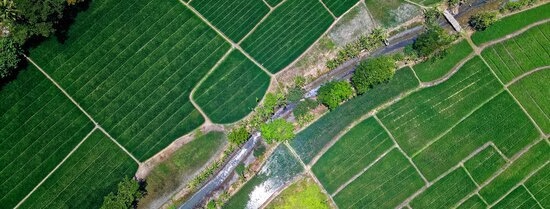
This workshop on Thursday June 6th brought together academics, scientists and policymakers to explore the controversial case of glyphosate, the active ingredient in Roundup® and other commercial broad-spectrum herbicides.
In light of the 2015 International Agency for Research on Cancer (IARC) monograph classifying glyphosate as a probable carcinogen, a flood of public discussion surrounding the safety and sustainability of this chemical has been unleashed. The debate has been partly fueled by the fact that glyphosate continues to be authorised by most countries around the world and, although not without their own controversies, influential regulatory agencies such as the European Food Safety Authority (EFSA) and the US Environmental Protection Agency (EPA) currently maintain the relative safety of glyphosate. The monograph by IARC, which is the specialised cancer agency of the World Health Organization (WHO), has triggered a number of processes to challenge the legality of glyphosate, and in some cases, has been used as evidence in trials against the manufacturer. In the United States, for example, there are currently over 5,000 open cases by farmers and residents against Monsanto (now a subsidiary of Bayer) for health harms related to glyphosate; and in a recent case in San Francisco, a jury awarded a $289 million verdict to a groundskeeper who contracted cancer after being exposed to the chemical for decades, which Bayer will appeal.
The dissensus among prominent scientific bodies complicates straightforward policy recommendations and regulatory action. Central to this debate, are not only scientific questions of fact-finding, but also the social questions of which facts and studies carry weight, and which do not. Law, policy, and corporate influence may be determinative in coproducing and providing legitimacy to the scientific methods through framing and selecting scientific questions and procedures. Questions of conflict of interest have been raised by experts as well as investigative journalists regarding the processes leading regulatory agencies’ findings.
Such considerations raise systemic questions regarding the regulatory infrastructure through which chemical substances such as glyphosate are authorised: What interests are represented in the process? Are there systemic conflicts of interest? How does the type and provenance of studies reviewed or omitted affect regulatory outcomes? What would a “firewall” between industry-funded science and policy look like? As the mandate of public regulatory bodies is to protect the public interest, is this reflected in procedures, aims, and independent science reviewed by these regulatory agencies? And, in what ways, if any, are private interests protected by the rules, procedures and practices of regulatory agencies? What happens when regulatory bodies cease to have the power to regulate companies and chemicals in protection of the public interest, and instead become partners working together with the very industries they were formed to regulate? Is there an onus of proving safety or is the regime assuming safety of chemicals? More generally, what are the rules that shape the de facto burden of proof in the development and use of chemicals? And finally, what needs to happen politically to rehabilitate environmental regulatory institutions so that they can fulfill their mission to protect public health?
09:30-10:00 Coffee and pastries
10:00-10:15 Welcome - Prof. Martin de Jong, Director of the Erasmus Initiative: Dynamics of Inclusive Prosperity
10:15-10:45 IARC Evaluation of Glyphosate - Dr. Kate Guyton, Group Head of IARC Monographs Group (videoconference)
10:45-11:15 EFSA Evaluation of Glyphosate - Dr. Guilhem De Seze, Head of the Scientific Evaluation of Regulated Products Department at EFSA
11:15–12:30 Panel 1. Law & Politics - Chair: Prof. Alessandra Arcuri
Prof. Laura Westra, Dr. Marta Morvillo, Dr. Ton Van Den Brink, Dr. Vesco Pascalev
12:30-13:30 Lunch
13:30 – 14:30 Panel 2. Science - Chair: Dr. Yogi Hale Hendlin
Dr. Angeliki Lysimachou, Dr. Nicolas Defarge, Prof. Chris Portier
14:30-15:00 Break
15:00–16:00 Keynote- Prof. Sheila Jasanoff, Pforzheimer Professor of Science and Technology Studies at Harvard Kennedy School
16:00–17:15 Roundtable on the Interrelation of Glyphosate Science and Policy + Wrap-up - Chair: Prof. Alessandra Arcuri & Dr. Yogi Hale Hendlin
Dr. Robert Lepenies, Dr. Maria Weimer, Prof. Alberto Alemanno, Dr. David Demortian, Dr. Charles Benbrook (videoconference)
17:15-18:00 Drinks
Location
Pavilion (Paviljoen) Serre
Erasmus University Rotterdam
Rotterdam, The Netherlands
Downloads
Organising Committee
Professor Alessandra Arcuri, Erasmus School of Law & Assistant Professor Yogi Hendlin, Erasmus School of Philosophy.
The Workshop is a joint initiative with funding provided by the Erasmus Initiative of Dynamics of Inclusive Prosperity & The Erasmus Institute of Public Knowledge.
